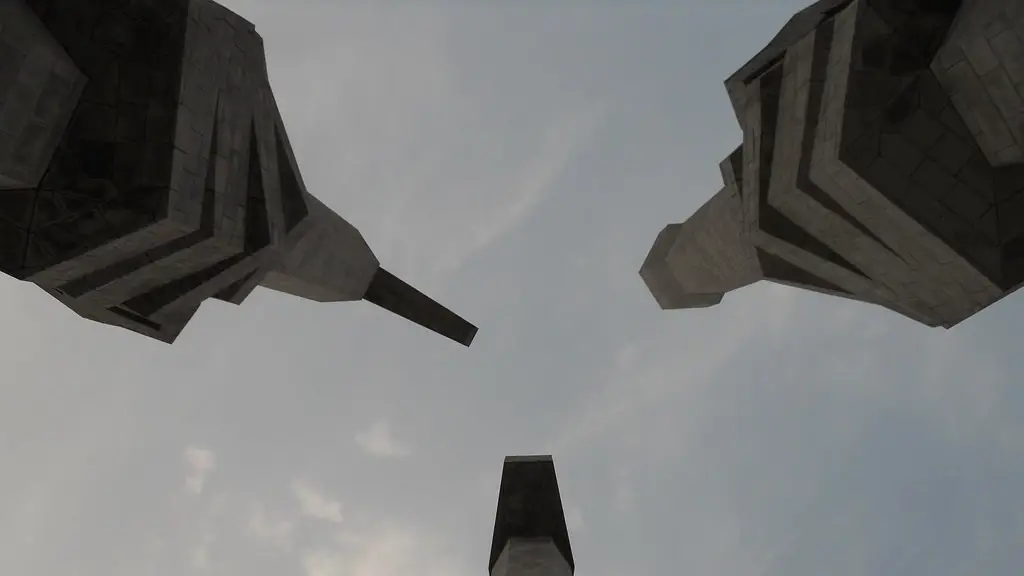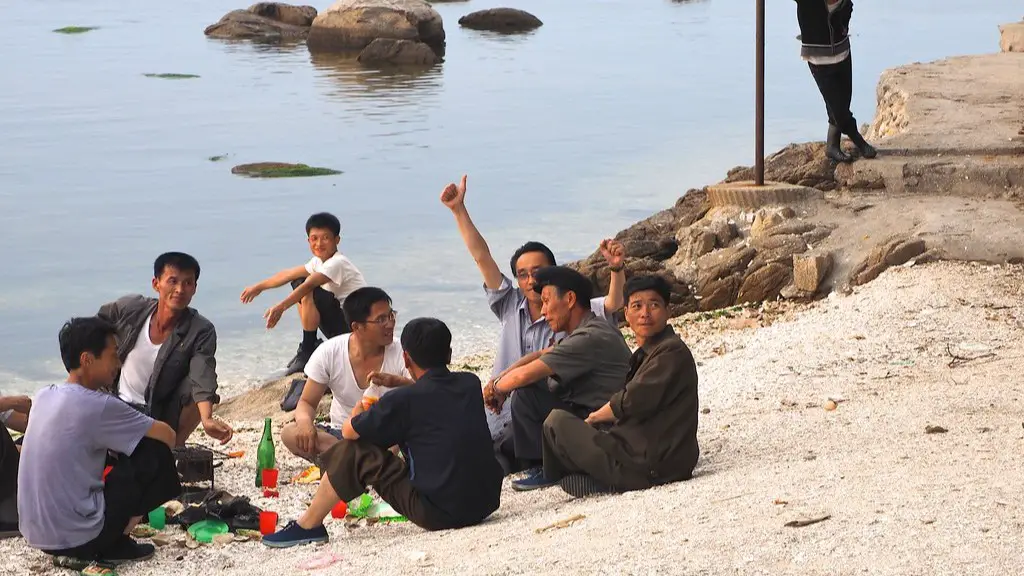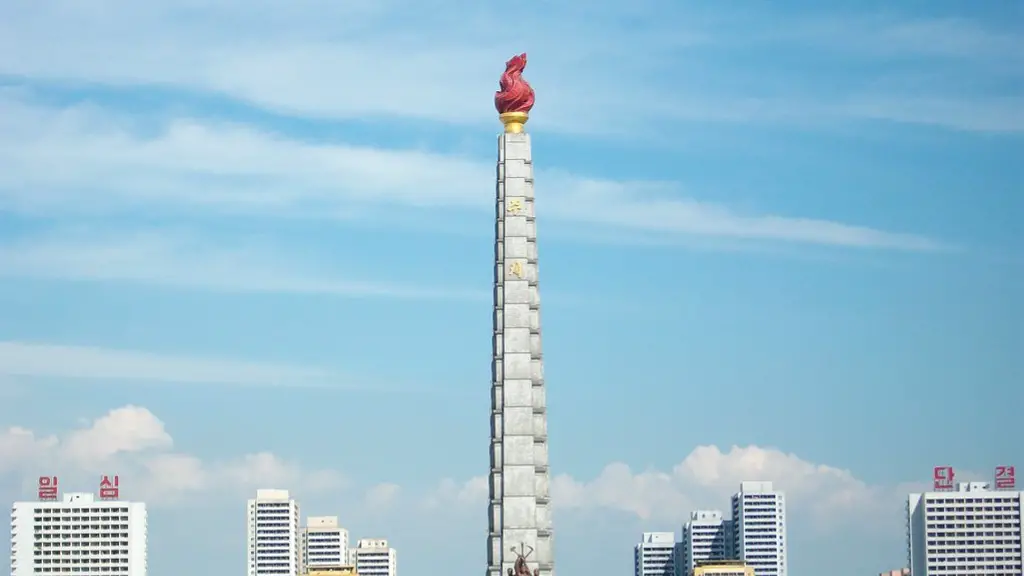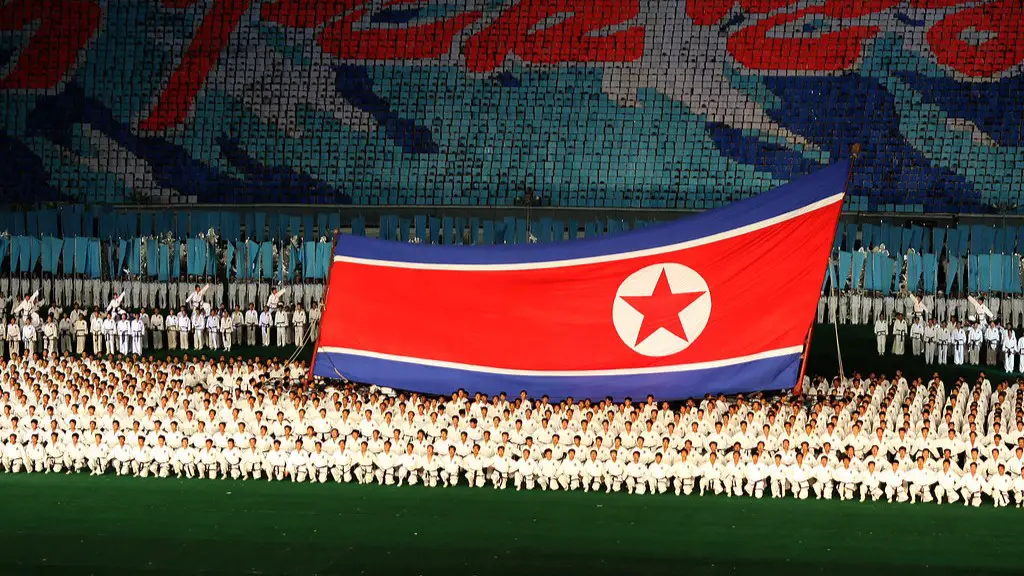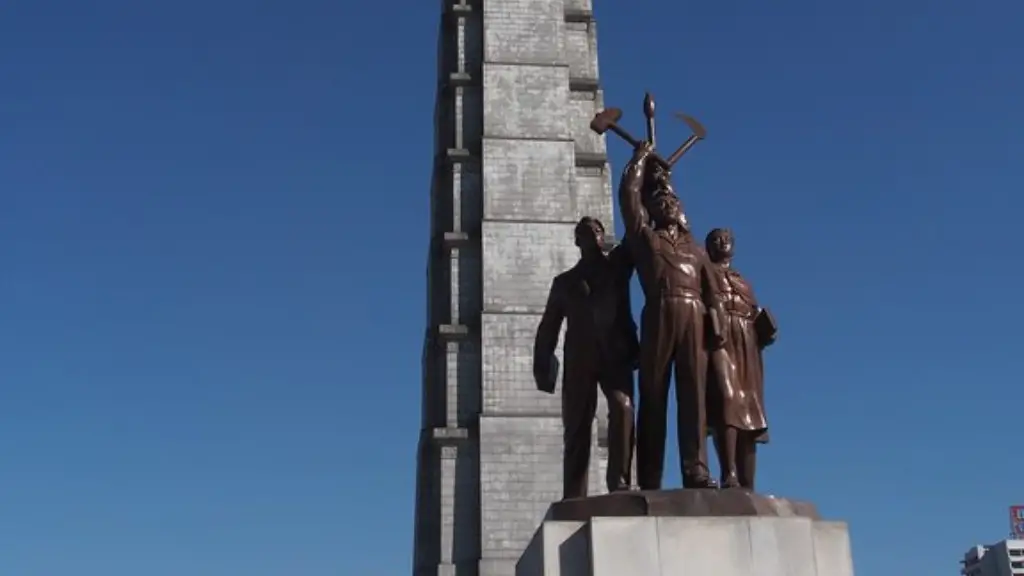Kim Il-Sung was the first ruler of North Korea, making him the founder of the state and the first leader of the Democratic People’s Republic. As well as the political figurehead of North Korea, Kim Il-Sung worked hard to develop the nation’s economy, military, and infrastructure since the 1940s. Furthermore, it was during his time as leader that North Korea’s communist government was formed and the country was declared an independent nation.
Kim Il-Sung’s rule was marked by the establishment of a pyramid-like system of government where he monopolized all political power and decision-making. Through his title of “Great Leader”, Kim Il-Sung was the de facto ruler of North Korea until his death in 1994, at which point his son Kim Jong-Il assumed power and the title of “Supreme Leader”.
Kim Il-Sung rose to power amidst an atmosphere of paranoia in the wake of World War II and the establishment of two separate government in the Korean peninsula – the north and the south. In 1950, he declared war against South Korea, an act which led to the start of the three-year Korean War and left North Korea with a significant economic burden. Despite this hardship, Kim Il-Sung was able to push through numerous economic reforms which resulted in significant growth in the nation’s industry and agricultural sectors.
Kim Il-Sung’s reign also saw the establishment of North Korea as an independent state, with its own collective identity, culture, and ideology. The leader pushed for a cult-like loyalty to the state and its symbols, which has been carried through in North Korea’s current government. In particular, Kim Il-Sung is seen as a key historical figure in the nation’s history, with the Kim Il-Sung Square in Pyongyang – the nation’s capital – and many monuments dotted around the country, displaying his likeness and celebrating his accomplishments.
The legacy of Kim Il-Sung has become increasingly intertwined with the history of North Korea, though not always in a positive way. His rule was characterized by authoritarianism and human rights abuses, leading some to suggest that it is his legacy that shaped the government of North Korea as we know it today.
Educational Reforms
Kim Il-Sung’s focus on education saw the introduction of a range of new reforms, which aimed to increase literacy and educational opportunities in North Korea. Key among these reforms were the introduction of universal primary and secondary education and the opening of new universities across the country.
Kim Il-Sung also pushed for a new education system which sought to teach North Koreans about the government’s ideology. This included the introduction of a policy known as, ‘Juche’, which proposed a path of self-reliance and socialism. As part of this policy, the leader sought to build a nationalist understanding among North Koreans and strengthen the nation’s ‘collective identity’.
The educational reforms of Kim Il-Sung have left a lasting impact on North Korea, with many of the changes still seen today. Education remains universal and free, with the government aiming to increase the nation’s literacy rate and expand access to higher education. Despite this, the education system remains focused on propagating the government’s ideology and promoting cult-like loyalty to the state.
Domestic and Foreign Relations
Kim Il-Sung’s rule also saw several changes in North Korea’s international standing. U.S. President Jimmy Carter sought to open up diplomatic ties with North Korea in the late 1970s, though this did not see much success given the increasing tensions on the Korean peninsula.
In the 1980s, Kim Il-Sung sought to expand the nation’s relations beyond the U.S., with the leader cultivating relationships with numerous other countries, namely the Soviet Union and China. This saw North Korea receive economic and military aid from these nations, which was instrumental in the nation’s development.
At home, Kim Il-Sung worked to instill a culture of unity and loyalty among the people. He was particularly successful in regenerating the country’s economy, with the emergence of a number of large-scale industrial facilities, agricultural programs, and welfare initiatives. These measures saw North Korea experience a period of growth and stability, despite the hardships of the Korean War.
Conclusion of Kim Il-Sung
Kim Il-Sung’s death on 8 July 1994 marked the end of an era in North Korea, with the nation finding itself without its founder and leader. The power vacuum was soon filled by Kim Jong-Il, who would assume the title of “Supreme Leader” and assume control over the nation.
Today, Kim Il-Sung’s legacy lingers in North Korea, with his face still appearing on public buildings and monuments. His rule saw the formation of an independent nation and a new political system, with his socialist ideology still forming the basis for North Korea’s government.
Modern Political Status
Since taking control, Kim Jong-Il has held onto the nation’s firm communist rule, refusing to open up the state to international relations and trade. His rule has seen progress on the economic front, with poverty levels decreasing and food production increasing in recent years. However, the political and economic situation in North Korea is still largely isolated and heavily controlled by the state.
In 2017, Kim Jong-Il’s son, Kim Jong-Un, took control of North Korea. Kim Jong-Un has been at the nation’s helm for a number of years now and has continued the legacy of his father and grandfather, with similar levels of control and secrecy over the state.
North Korea continues to remain largely isolated from the rest of the world, with no plans of opening up its economy or introducing democracy any time soon. The legacy of Kim Il-Sung has seen the nation remain as one of the most insular and isolated states in the world.
International Impact
The legacy of North Korea’s first ruler has had a significant impact on the global political landscape. North Korea is currently one of the most isolated countries in the world, with its government proving highly authoritarian and oppressive to its people. This has raised serious questions over human rights abuses and security concerns, with the nation’s weapons program recently coming under international scrutiny.
North Korea’s relationship with the United States has also been strained since Kim Il-Sung’s rule, with the two nations still locked in a tense stand-off. This has been compounded by the worsening security situation on the Korean Peninsula in recent years, with the nation’s nuclear weapons program becoming increasingly concerning for the international community.
What’s more, the legacy of Kim Il-Sung and the North Korean state has become an enduring symbol of oppression, autocracy and isolation, making it a stark example of the implications of authoritarian regimes.
Military Strength
Kim Il-Sung’s rule saw the establishment of North Korea as a nuclear power, with the nation now possessing an arsenal of nuclear and ballistic weapons, as well as a formidable army. The North Korean military is highly secretive and remains a largely hidden entity, refusing to cooperate or engage with the international community.
North Korea’s military strength is seen as one of the main drivers of its foreign policy and isolationism, with the nation unwilling to enter into negotiations or invite representatives from Western countries. This has become increasingly concerning in recent years, with the North Korean state openly defying UN sanctions and refusing to cooperate with the international community.
The legacy of Kim Il-Sung in North Korea continues to linger, with his image and figure still appearing on public buildings and monuments, and his policies and views still forming the basis of the nation’s government.

